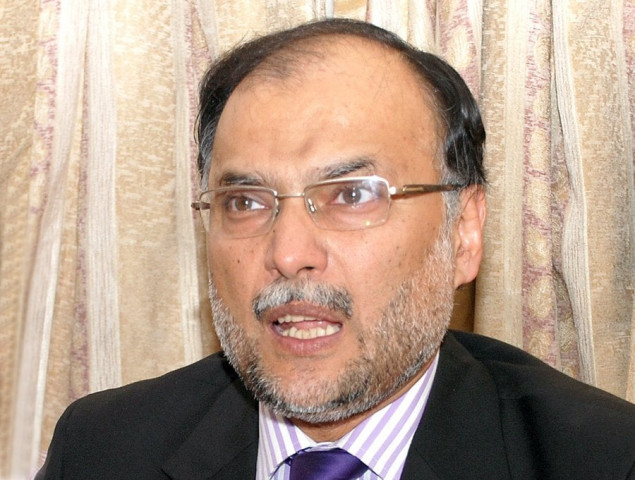‘Microfinance essential to achieve prosperity‘
To prosper, Pakistan needs to increase tax-to-GDP ratio to 20%: Minister .

“Government is determined to alleviate poverty by promoting microfinance specifically targeted at women entrepreneurs for socioeconomic prosperity of the country,” says Iqbal. PHOTO: Express/Zafar Aslam
He was addressing the 8th Citi-PPAF Micro-entrepreneurship Awards ceremony at a local hotel, where Pakistan Poverty Alleviation Fund (PPAF) CEO Qazi Azmat Isa and Citibank Pakistan Managing Director Nadeem Lodhi were also present.
Iqbal said that two-thirds of Pakistan’s population was living below the poverty line or earning less than $2 a day. “The government was determined to alleviate poverty by promoting microfinance specifically targeted at women entrepreneurs for socioeconomic prosperity of the country,” said Iqbal.
He added that the government had taken various steps for the revival of the national economy and to generate resources and revenue to achieve economic self-reliance. It had also adopted austerity measures to check non-developmental expenditures and promote financial discipline in the country.
The planning and development minister lamented that the tax-to-GDP ratio of Pakistan stood at 9%, which was the lowest compared to regional countries.
“If we want prosperity and economic self-reliance, we will have to increase our tax-to-GDP ratio to 20%.”
Published in The Express Tribune, June 28th, 2013.
Like Business on Facebook, follow @TribuneBiz on Twitter to stay informed and join in the conversation.



















COMMENTS
Comments are moderated and generally will be posted if they are on-topic and not abusive.
For more information, please see our Comments FAQ